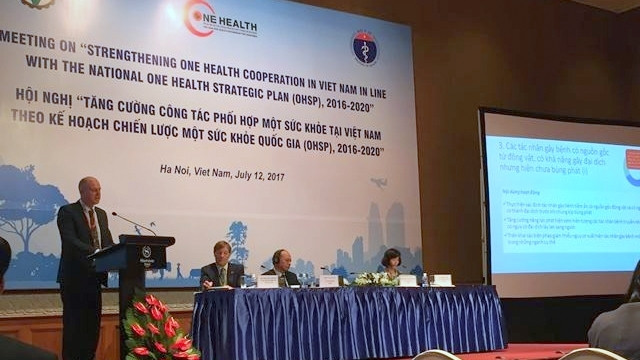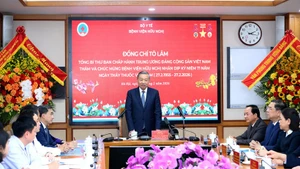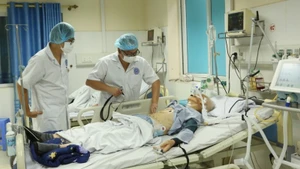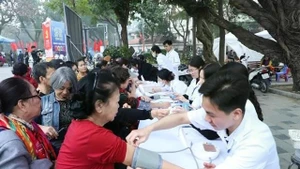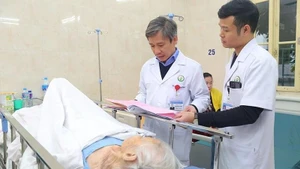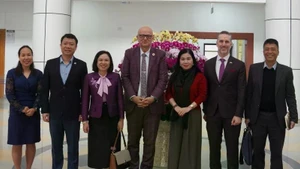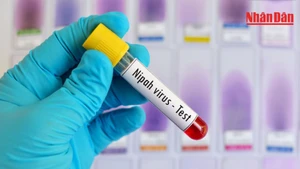The One Health initiative on the prevention and control of animal-to-human disease, with the participation of 27 domestic and international agencies and organisations, was launched on March 1, 2016, aimed at strengthening coordination in implementing the OHSP in Vietnam.
Accordingly, the OHSP provides a five-year plan framework, which aims to improve the capacity of the health system to minimise the impact on human health and other effects caused by animal-to-human transmission.
Deputy Minister of Agriculture and Rural Development Vu Van Tam affirmed that the OHSP continues to focus on capacity building on animal-originated disease control, the control of influenza viruses and animal-to-human diseases with a high risk of transmission. The plan will assist the Government of Vietnam in the prevention of rabies, antibiotic resistance and other communicable diseases among animals and humans.
Deputy Minister of Health Nguyen Thanh Long said that the complex changes in the global environment and the emergence of dangerous diseases, especially those transmitted from animals to humans, are the threats to human health. More than 70% of human infections are detected to be of animal origin.
Accordingly, the deputy minister emphasised the need to strengthen international cooperation to create synergy and mobilise financial resources and technical cooperation is necessary for the prevention and control of emerging epidemics and diseases transmitted from animals to humans, while actively responding to new epidemics that are likely to spread on a continental and global scale.
Over the past ten years, with the help of governments and international organisations, Vietnam has taken more practical actions to fulfill its commitments to the international community in terms of disease prevention and control.
Vietnam has actively participated in many global initiatives, becoming one of the first two countries to implement the Global Health Security Agenda. Together with Indonesia and Senegal, Vietnam is a pioneer in the implementation of the Zoonotic Disease Action Package (ZDAP).
At the same time, the country has been highly appreciated by the World Health Organisation for the implementation of the International Health Regulations (IHR) through the External Evaluation (JEE) in 2016.
The close, comprehensive and multi-sectorial collaboration between the Ministry of Health and the Ministry of Agriculture and Rural Development, as well as the relevant ministries and agencies over the past few years, has been evidenced by the effective control of avian influenza and human influenza, expanded to the prevention and control of other animal-to-human transmission diseases, such as rabies, anthrax, MERS-CoV, Ebola, etc., as well as other problems such as antibiotic resistance and diseases spreading from contaminated food.
Deputy Minister Long pledged that the Ministry of Health will continue to actively participate, promote and implement more effective disease prevention activities, including communicable diseases from animals to humans. He also expressed his wish that international organisations, through One Health Cooperation, would continue a long-term commitment to Vietnam in order to successfully implement its 2016-2020 OHSP towards a safer world against infectious diseases.
Delegates at the conference suggested that the relevant ministries and departments closely control diseases transmitted from animals to humans, while promoting the emergency prevention of animal-derived diseases.
The health sector should continue to improve its capacity on the testing and diagnosis of dangerous and emerging infectious diseases, such as avian influenza, rabies and MERS-CoV, as well as developing a national health data system for the overall management of data, close surveillance and early detection of infected cases.
